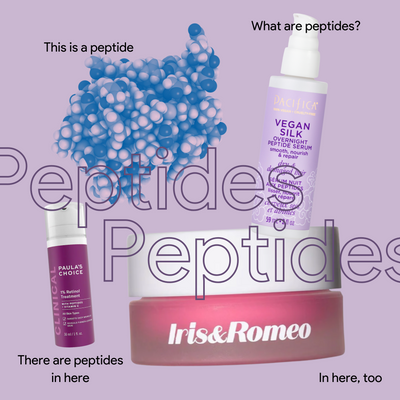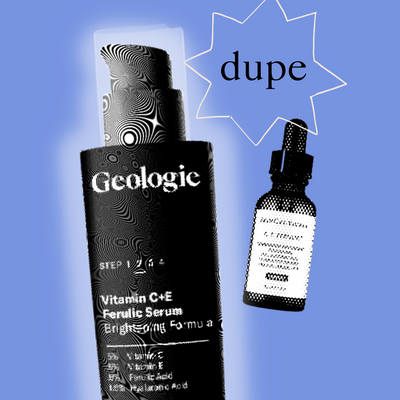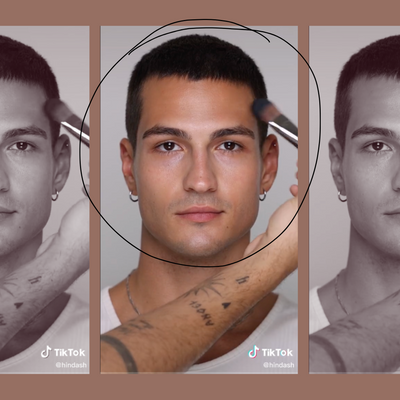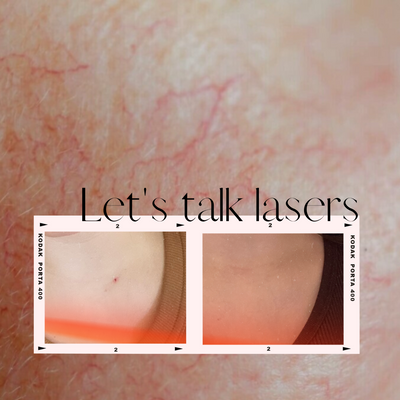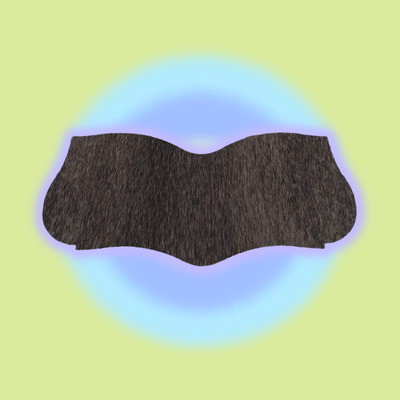Protecting yourself from sun exposure has long been drilled into us, but as it turns out, even staying inside doesn’t necessarily keep your skin safe.
That’s right, as we’ve heard, blue light rays can be just as damaging. Between the boredom of self-isolation and working long hours from home, we’re now staring at our digital devices more than ever. And while we may be aware of the damaging effects of all that screen time to our eyes, dermatologists claim it’s also subtly damaging our skin over time.
SEE ALSO: Best products to help fight blue light rays
Besides attempting to scroll Instagram a little less or slowing your roll on the Netflix intake, it’s not like you can just give up technology altogether. So how do you protect yourself? We asked the experts on mediating blue light’s impact to keep your skin fresher, longer.
Wait, what is blue light?
You’ve heard of ultraviolet rays (UV and UVB) aka the unseen colors on the light spectrum that cause visible sunburn (ouch). But blue light is less acknowledged and actually visible to the eye. Dr. Michele Green, board certified dermatologist and RealSelf contributor, explains that while UV light affects is known to effect the front of the eye and forms cataracts, blue light damages the back of the eye. It also beats out the other color rays in its potency.
“Electromagnetic radiation is a combination of red, orange, yellow, green and blue light rays and other variations of each of these colors,” Green says to Very Good Light. “The combination of these colors creates a visible and invisible light spectrum with different wavelengths. Blue light has the shortest wavelength on the spectrum; however, it has the highest energy.”
For this reason, blue light has the capacity to keep us awake or motivated (read: think of all those times you’ve struggled to fall asleep after extended phone time), and has grown to become an integral component of our sleep cycle. Still, too much of a good thing always has the capacity to do some serious damage, and blue light is no exception.
How does blue light affect skin?
It’s easy to compare blue light to high energy visible light (HEV), the radiation emitted from electric lights or appliances like microwaves which has also been known to strain eyes, but of late, blue light has been a much more consistent subject of studies – particularly surrounding skin. A medical school in Tokyo linked blue light to possible animal oxidative stress, one of the primary causes of aging caused by cell-destroying free radicals overpowering the antioxidants in your body.
At the same time, our interaction with this amount of blue light is relatively new so we may not know for decades it’s exact impact on our skin’s well-being. Nonetheless, Dr. Green says you may notice your skin take on a “sallow” tone from too much time spent on electronic devices, or damage may manifest as hyper-pigmentation, inflammation, skin laxity or just straight up wrinkles.
Dr. Green breaks it down: “Long term exposure to blue light causes stress on the skin, which results in changes in skin texture and color. It also weakens the skin surface, which exposes the skin to free radical damage and premature aging.”
Interestingly, blue light or “photodynamic therapy” has proven to be very effective on skin disorders such as acne, sun spots, psoriasis, scars and even skin cancer, by targeting lesions and killing bacteria or can cancerous cells when coupled with a topical photosythesizing drug.
How can we stop blue light damage in its tracks?
While there might not be any definitive research around it (yet), sun protection definitely can’t hurt. Broad spectrum sunscreen is all-encompassing when it comes to combating with every colored ray, so when make sure to make it a part of your daily routine – even if you’re not planning to leave the house. There are also sunscreens that repair and prevent blue light damage and therein, premature aging (hi Murad!).
Antioxidants are also a must, bolstering skin’s defense from the oxidative stress caused excess free radicals such as blue light and UV light. Brands such as Bare Minerals and Estee Lauder have created antioxidant-packed sunscreens and overnight repair creams that address blue light specifically. Vitamin C also serves to address any hyper-pigmentation caused, so stock up on those serums and make sure you’re working a lot of citrus into your diet.
There are also pretty effective methods of lowering your blue light exposure that you can take now. Blue light screen protectors work wonders in intercepting harmful rays, and you can also set your color and brightness on your devices so they don’t hit you as hard. Remember: protection is prevention even in doors. You’ve got this.


